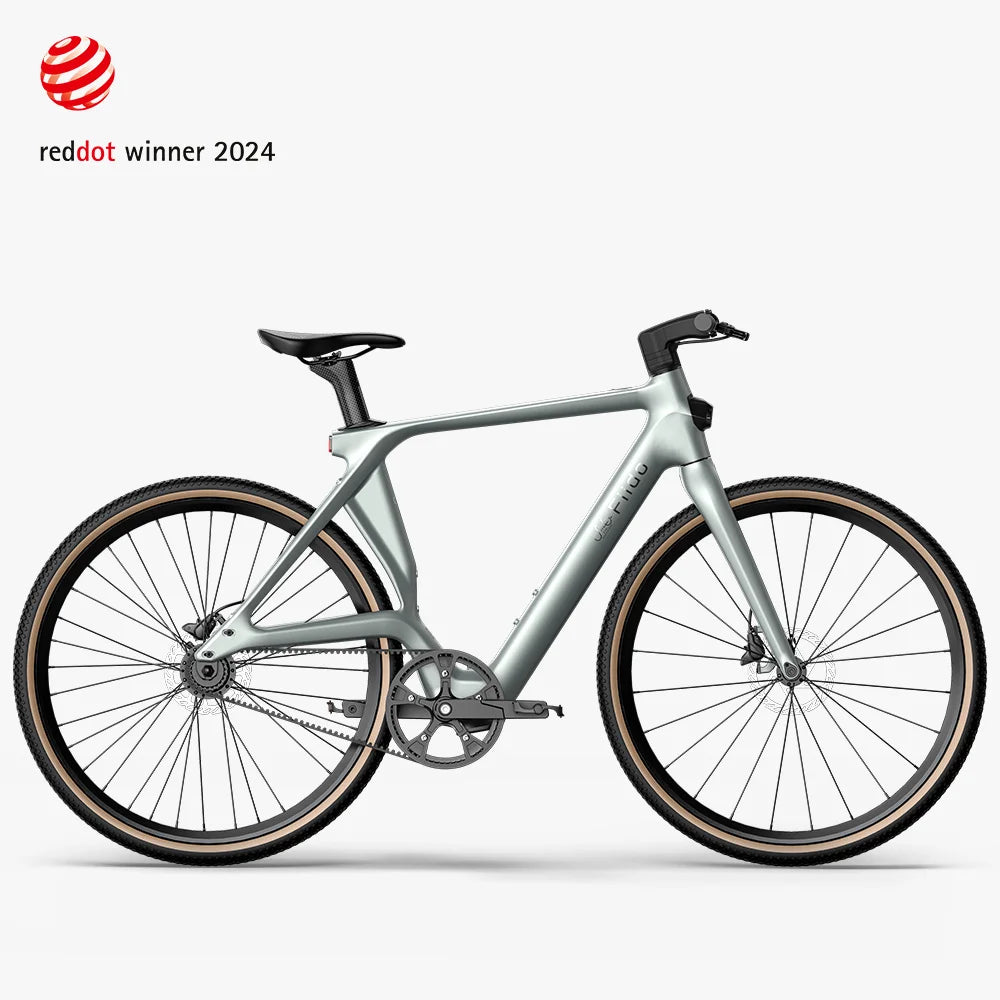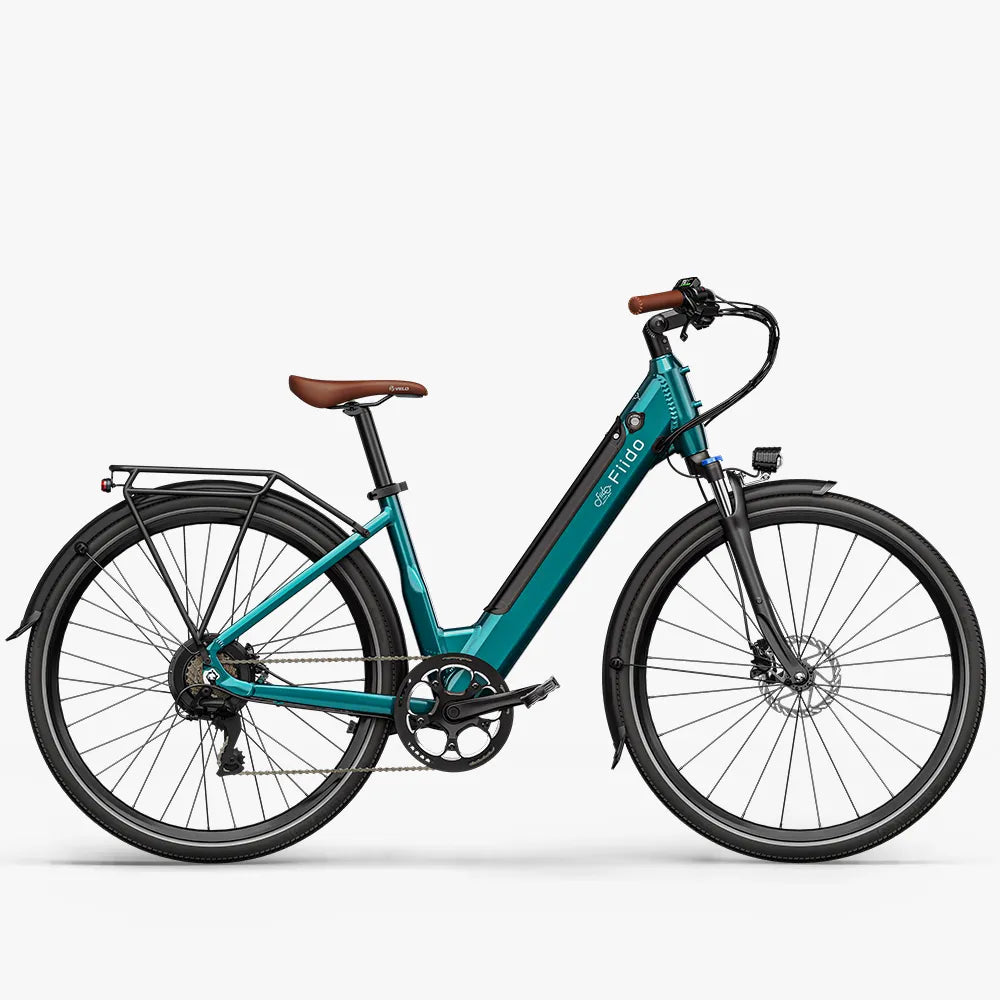When shopping for an electric bike, many consumers notice significant differences in price and quality, especially when it comes to the frame. The key reasons behind this usually relate to the frame material, manufacturing process, and design details. Different materials like aluminium alloy, carbon fibre, or steel each have their own strengths, weights, and costs. Additionally, welding techniques and forming methods used during production greatly affect the final quality of the frame.

Overview of 3 Common Electric Bike Frame Materials
Currently, the main materials used for electric bike frames on the market are:
Aluminium Alloy: Aluminium alloy is a lightweight yet strong metal widely used for electric bike frames. Compared to traditional steel, aluminium weighs about a third as much, making the whole bike lighter, easier to ride, and helping extend battery range. It naturally forms a protective oxide layer on its surface, which makes it highly resistant to rust and corrosion — perfect for the wet and damp UK climate.
Steel: Steel frames are heavier than aluminium but offer excellent toughness and flexibility, which helps absorb shocks while riding and provides a more comfortable experience. Steel is particularly durable and less prone to cracking, making it ideal for carrying heavy loads or riding on rough terrain. However, due to its heavier weight, steel frames place more strain on the motor and battery, reducing range and manoeuvrability, which is why steel frames are less common in the electric bike market.
Carbon Fibre: Carbon fibre frames are made by layering thousands of ultra-thin carbon fibre strands, bonded with resin, and then cured under high heat and pressure to eliminate excess material and voids. This results in an incredibly lightweight frame with outstanding strength and stiffness. Compared to metal frames, carbon fibre also dampens vibrations better, reducing rider fatigue. However, this process is time-consuming, technically demanding, and has low production efficiency, which significantly drives up costs.
Since most electric bikes on the market today use either aluminium alloy or carbon fibre frames, the following sections will focus on the differences between these two materials.
Riding Experience with Different E-Bike Frame Materials
Durability and Maintenance
Aluminum Alloy Frames have good corrosion resistance and are not prone to rust in daily use, making them suitable for rainy climates. Maintenance is relatively simple—just rinse the frame regularly with clean water to prevent buildup of mud and salt, which could lead to surface oxidation. If you notice light scratches on the surface, you can use a special aluminum repair agent or fine sandpaper to gently polish them, then apply protective paint to shield the surface.
Carbon Fiber Frames are more sensitive to impacts. In particular, severe collisions may cause internal micro-cracks, which are difficult to detect with the naked eye and require professional equipment to identify. When riding, it’s important to avoid crashes or hitting hard objects.
Performance
Carbon Fiber is extremely lightweight, making it ideal for users who need efficient riding or frequently carry their bike up stairs. If you live in an apartment without an elevator or need to bring your bike onto buses or subways, a lightweight carbon fiber frame can significantly reduce your burden.
Aluminum Alloy Frames are generally durable and easy to maintain. When choosing one, focus on whether the frame geometry fits human ergonomics and whether the welding is smooth and precise—these factors directly affect the frame's strength and riding comfort. Pay attention to whether the frame feels rigid or slightly flexible. An overly rigid frame can feel bumpy when riding, while a frame with some flex offers a more stable ride.
Riding Comfort
Carbon fiber material naturally offers a certain level of shock absorption, as its fiber structure can absorb and disperse vibrations from the road. This effectively reduces the feeling of bumps during rides, making it especially suitable for long-distance cycling and complex terrains. The shock-absorbing quality not only enhances riding comfort but also helps reduce fatigue, making it particularly beneficial for users who experience pressure on their knees or lower back.
Aluminum alloy, on the other hand, tends to be relatively stiff. However, most aluminum alloy e-bikes come equipped with front suspension forks or added shock-absorbing saddles, which can significantly ease the discomfort caused by vibrations and improve the overall riding experience.

E-Bike Buying Advice
If you often need to carry your e-bike up and down stairs, use public transportation, or prioritize lightweight design and riding efficiency, a carbon fiber frame would be a better choice. The Fiido Air carbon fiber electric bike is suitable for these needs —it weighs only 13.75 kg and features an efficient Gates Carbon Drive belt system along with hydraulic disc brakes, providing a smooth and safe riding experience. Overall, it performs excellently, meeting the demands of riders who value both performance and portability.
Fiido Air Carbon Fiber E-bike
A revolutionary lightweight bike, winner of the Red Dot Award.
Reminder: Prices are subject to the product detail page ,some earlier card details may have been updated.
On the other hand, if you care more about frame durability, everyday commuting practicality, and have a more limited budget, an aluminum alloy frame will meet your needs for sturdiness and easy maintenance. The Fiido C11 Pro, a lightweight city e-bike with an aluminum alloy frame, weighs 24.5 kg—heavier than its carbon fiber counterpart, but it comes equipped with a 40mm oil-spring front suspension, effectively absorbing road vibrations to improve riding comfort. Its 7-speed gear system combined with hydraulic disc brakes (with power cutoff function) ensures smooth shifting and safe braking. The bike also offers an impressive range of up to 104 km.
Fiido C11 Pro City E-bike
Trusted by 10000+ riders, Fiido C11 is now even better.
Reminder: Prices are subject to the product detail page ,some earlier card details may have been updated.
Conclusion
When choosing an e-bike frame, the most important thing is to base your decision on your actual needs. Carbon fiber frames are known for being lightweight and efficient, ideal for users who frequently carry their bikes or prioritize performance. Aluminum alloy frames, on the other hand, are sturdier, more durable, and easier to maintain—great for daily commuting and varied road conditions. Clearly understanding your riding habits, commuting distance, and living environment, and matching those to the frame’s features and performance, will help you make the best choice and ensure every ride is comfortable and worry-free.


















